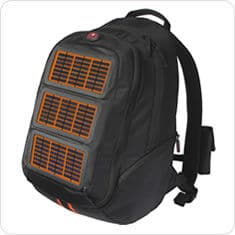 Roaming the globe can create a large carbon imprint. Traveling with jet fuel burning airplanes, and in foreign countries that don’t take the environment seriously doesn’t mean you have to ditch smart and efficient ways to keep our planet healthy.
Roaming the globe can create a large carbon imprint. Traveling with jet fuel burning airplanes, and in foreign countries that don’t take the environment seriously doesn’t mean you have to ditch smart and efficient ways to keep our planet healthy.
There are plenty of small and big ways you can reduce the amount of pollution and waste when you take your next trip. By modifying some bad habits you can not only make your travel greener, but the places you visit as well.
Here are 33 ways to green your travel.
- Use Public Transportation When Your Get There – For many places far from home, this is what you’ll do. If you’re driving to a major city in the US, find out the public transportation routes available once you get there. Not only will you save gas, but you’ll be able to enjoy and see the sights around you.
- Send an E-Postcard – Create an electronic postcard for free online and use one of the pictures you’ve taken to give it a personal touch.
- Combine Trips – Accumulate your vacation time wisely and take a longer chunk of time off. This way you can save money and pollution by combining your trips. It’s more efficient to see 5 countries in one trip, then going to each one separately.
- Flag Down Hybrid Taxis – When I was in Stockholm and London, I noticed many cabs that were Toyota Prius. If you’ve got the time, try to get the attention of a hybrid or smaller taxi to reduce air pollution. Hybrids ranked as exceptionally safe in recent crash tests.
- Eat Vegetarian On The Plane and When Possible – Doing so on the plane will get you your meal faster, keep you healthier, and (ever-so-slightly) reduce deforestation. 18% of all greenhouse gases come from livestock.
- Donate the Money You Save By Being Green To Endangered Site That You Visit – If you’ll be visiting an endangered site, stop by the World Monument Fund to donate some money, get more information, and take political action to save it.
- Calculate How Much Carbon Your Transportation Will Create – Find out how many tons of carbon your next plane ride will create with Climate Crisis’ carbon calculator.
- Learn The Language – You won’t be able to tell where tell which lake is polluted, or read signs related with the environment if you don’t know a few words in the language. Use free resorces on the Web and follow the guide to the best ways to learn a new language to get you up to speed.
- Offset Your Carbon Imprint – You can offset your carbon imprint by paying for renewable energy to be used for the equivalent of pollution you create on your next trip.
- Stay Close To Home – You may have seen more of Europe or Africa than the cities around your hometown. Research an interesting spot close to home and substitute it for a farther destination once a year.
- Don’t Litter – An obvious one. Keep a freezer bag with you to store gum wrappers and cigarette butts until you find a waste bin.

- Bring A Water Filter Pitcher With You – People tend to go bottled water crazy when they’re on the road. Pack a pitcher and fill it from a water fountain if you’re on a road trip or going overseas. If you can’t be sure about germs at your destination, buy a 99$ iStraw that filters out 99.999% of dirt and pathogens.
- Go Grocery Shopping From a Local Farmer’s Market– It’s fun to go out in Rome and eat dinner every night, but it’s expensive. Go grocery shopping so you can save some money, reduce pollution created by eating imported fruits and vegetables, and experience the city as locals do, not tourists.
- Recycle – Many hotels might not offer recycling in your room, but have bins in the lobby. Look for them as you get your room card at the reception desk and set aside wine bottles, paper, and plastic bottles.
- Stay at an Ecofriendly Hotel – Research ecofriendly hotels that offer towel reuse programs and use florescent light bulbs.
- Use A Condom – No matter who you’re having sex with, or how many people, use a condom so you don’t leave behind little ones. All other concerns aside, our planet has a population problem – don’t help contribute to it. Besides, diseases are rampant.
- Prepare Your Home For A Long Time Away – Turn off your PC, shut off the PC and heat, and have a friend come by your house from time to time to make sure no water is leaking. Switch your bills to be paid automatically online to reduce paper and make leaving your home for an extended period for travel easier.
- Write Down Your Road Directions, Don’t Print Everything Out That’s Not Essential – There is no need to print out 5,000 words in Italian if you can write down several of them or print out sets directions that you can write down. Each printed page with 10 words on it (or end-user agreements) is a waste.
- Don’t Feed Or Bother Wildlife – Monkeys are cute but feeding them only makes their relationship with humans more complex. The only place you should interact with indigenous wildlife is at a zoo, or under supervised conditions.

- Turn Off The Lights When Your Leave The Hotel Room – Sure, the hotel pays for it, but lights are still electricity used. Make sure to keep the thermostat reasonable and off when you leave the room.
- If You Can Afford It, Take Direct Flights – Take the time to search around, if your dates are flexible you can save time, hassle, and pollution by taking a direct flight.
- Fly In The Warmer Months – Flight preparation, heating runways, and fuel consumption all increase as the temperature falls on the ground. The same goes for your car too, the colder the weather, the less efficient the engine.
- Write To Your Hotel And Make Green Suggestions – After your stay, write a pleasant note to corporate headquarters telling them how much you enjoyed your stay. Add any ecofriendly suggestions you witnessed while you were there, if they weren’t tell them how important recycling, florescent bulbs, and reusable towels are to you (aka. paying customer).
- Green Your Car – Accelerate slowly, inflate your tires to the recommended PSI (or slightly above), and follow these tips.
- Buy Organic Travel Gear – Blue jeans, solar powered backpacks, and magnetic jackets are not only good for the environment, but are good for storing your gadgets.

- Bring Rechargeable Batteries – It’s a pain to plug things in, especially if you’re traveling international. This can reduce some of your headache.
- Plan Your City-By-City Sightseeing to Save Unnecessary Driving – Yapta is a great service that can help you coordinate yourself between all of the sites you’ll be touring on your next trip. The less unneeded kilometers you travel, the less energy you’re using overall.
- Microfinance Someone From The Country You’re Visitng – A small 25$ loan to someone trying to earn their own living is a great way to help a country that might seem scary to visit or where your dollar will go a long way. Kiva is a great way to do this online – when you get your money back (you’re not giving charity, you’re giving a small loan), use it on your next vacation.
- Use Hand Sanitizer – It saves water and keeps you from getting sick. Use it generously in unfamiliar and frequently frequented places. It also helps to relieve bug bite itches.
- Bring A Fork, Spoon, and Knife With You – All in your carry on luggage, doing this can save you from using a bunch of plastic utensils. Better yet, bring a Spork Original, which combines all three.
- Bring Duct Tape And A Sewing Kit – The Duct Tape Guys have the most extensive database of things you can mend and make (including wallets) with duct tape. A sewing kits saves you from running to the store of having to buy new socks and other clothes.
- Do Your Research – The Washington Post has a great rundown of some good “ethical” travel guides.
- Travel With Friends – It’s fun, but besides that you are essentially carpooling (even if it’s an airplane). Coordinate with some pals and take a great trip to anywhere in the world!
The best asset you have to being green while you travel is your own creativity. Try to reuse whatever is possible and help keep the places you visit clean, even if it’s just taking an aluminum can and recycling it, reusing bags from carry-out or brining a some silverware with you so you don’t have to use plastic.
What are some of the ways you green your travels? Tell us, in the comments!












Fox, I love your list of tips here. In particular, I think the idea of taking a water filtration system with you is an interesting one. People filter their water on camping trips, but they don’t realize that if you’re traveling to the developing world, many of those same water filters/sterilization systems are just as effective at treating the diseases in dirty tap water. Buyer beware, of course: you’ve got to check that your purification system covers the bugs you might be exposed to.
Thanks Tom,
It also saves so much time from not having to run to the store as often. Also, you can drink more instead of rationing out what you’ve got with you in the hotel room.
Great tips – thanks for letting us know about them by posting on our blog. Will definitely check out – and no doubt point others to – your other related posts.
Thanks Switly – I’ll be dropping by from time to time, to read and drop comments.
Useful tips.
However, I ain’t going vegetarian anytime time soon. I love those pre-cooked, taste-lacking meat dishes that they have in planes.
Luis
@luispantoja
I think those meals are so processed, there is no meat left in them anyway.
Excellent tips! I’m a big fan of public transpo no matter where I am. I also like to take advantage of bicycle rentals when I can. I hope you have a Happy (and Green) Earth Day!
Thanks Carrie! Bikes are also a great way to see so many places and less insulated than a car 🙂 Hope you have a great and green Earth Day too 🙂
Excellent tips Anil. I like the idea of finding a location close to home. It’s amazing how often we feel we need to travel halfway around the globe to find a new and exciting spot, when often, you can find that an hour away from the place you call home.
Yes, it’s easy to put off what’s close so much that you miss it all together 🙂